- About
- Topics
- Picks
- Audio
- Story
- In-Depth
- Opinion
- News
- Donate
-
Signup for our newsletterOur Editors' Best Picks.Send
Read, Debate: Engage.
| April 14, 2020 | |
|---|---|
| topic: | Climate action |
| tags: | #climate change, #environment, #NGO „Urgenda", #Dennis van Berkel |
| located: | Netherlands, United Kingdom, Germany |
| by: | Frank Odenthal |
On 20 December 2019, the Dutch Supreme Court, the highest court in the Netherlands found that the Dutch government had obligations to urgently and significantly reduce emissions in line with its human rights obligations. A historic decision, as Urgenda put on their homepage. It was the first time that citizens had a court ruled that their government had a legal duty to prevent dangerous climate change.
Urgenda‘s success may have been just the beginning. Resistance is forming worldwide against governments who believe they can just ignore the climate emergency or pay more attention to profits than to the future of generations to come. At least in 28 countries climate change cases have been brought in, around three quarters of them in the United States. In 2019, around 1,328 cases have been registered, according to the Grantham Research Institute (GRI). Urgenda provides an overview of some of the most interesting pending climate cases on their homepage.
FairPlanet had a word with Dennis van Berkel, Urgenda‘s legal counsel.
FairPlanet: What were the crucial points for Urgenda’s success in court against the Dutch government?
Dennis van Berkel: Well, it is pretty evident that most governments are not doing enough to tackle the climate crisis. In the Netherlands we actually had the situation that the government itself admitted that it is not doing enough. That might have had an impact on the court decision too. There have been similar cases to the Dutch case that did not result in the same judgement, but this was often related to the specific facts.
In New Zealand for instance the government already increased its climate targets before the verdict. A similar situation happened in the UK. In Germany a case was dismissed, but there the court considered that the German targets are much higher than in the Netherlands, for example. What was critical in all of these cases: the courts say that there is are legal obligations to reduce emissions in order to prevent dangerous climate change and that there is a minimum level of protection that the governments must guarantee. That's already a very big step. It means that going forward, government will have to be able to explain why they are doing enough, or they'll risk being held to account in a court.
FairPlanet: Why could legal action be such a powerful weapon in fighting against climate change?
For more than 25 years, government have been negotiating what to do to tackle the climate crisis, but emissions are still rising, and no decisive action is being taken. The impacts of climate change are already threatening the lives of people around the world, and those risks are driven by the inaction of the governments. But as I said, governments are legally obliged to protect the right to live. In these circumstances law is an obvious tool to push governments to do what they need to do to avert these dangers. You know, before the courts facts matter! And it is becoming increasingly difficult for governments that they are indeed doing enough to avert the climate crisis that is threatening the lives of millions of people. That’s why courts can be such an important platform.
Does this apply to national courts as well as international ones?
The climate crisis can only be solved together, i.e. at the international level. Nevertheless, the national courts are very important, because here an individual, a single citizen, can sue his government. This is usually not possible at the international level.
International courts are often not as accessible to individuals. In the EU for example, the "People's Climate Case" was denied by the first instance court. Citizens have no standing to sue the EU, it said. The case is now being referred to a higher court, so we're still hoping that this judgement will be overturned.
What's next for Urgenda? What projects, what targets?
The fight against climate change as just begun. At Urgenda, we keep working to push the Netherlands towards zero greenhouse gas emissions by 2030. And we've established the Climate Litigation Network, where we support climate cases all around the world. We'll keep speaking out against governments in-activities to protect our planet, and push them to meet their obligations.
Dennis van Berkel is an attorney. He‘s been working for corporate law firms for many years, but then decided to take up the fight against climate change. He joined Urgenda as in-house lawyer and legal counsel in 2013. He was born in Leiden, The Netherlands.
By copying the embed code below, you agree to adhere to our republishing guidelines.
